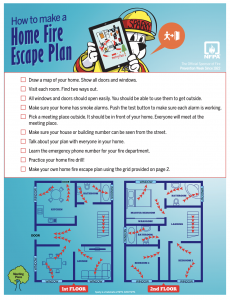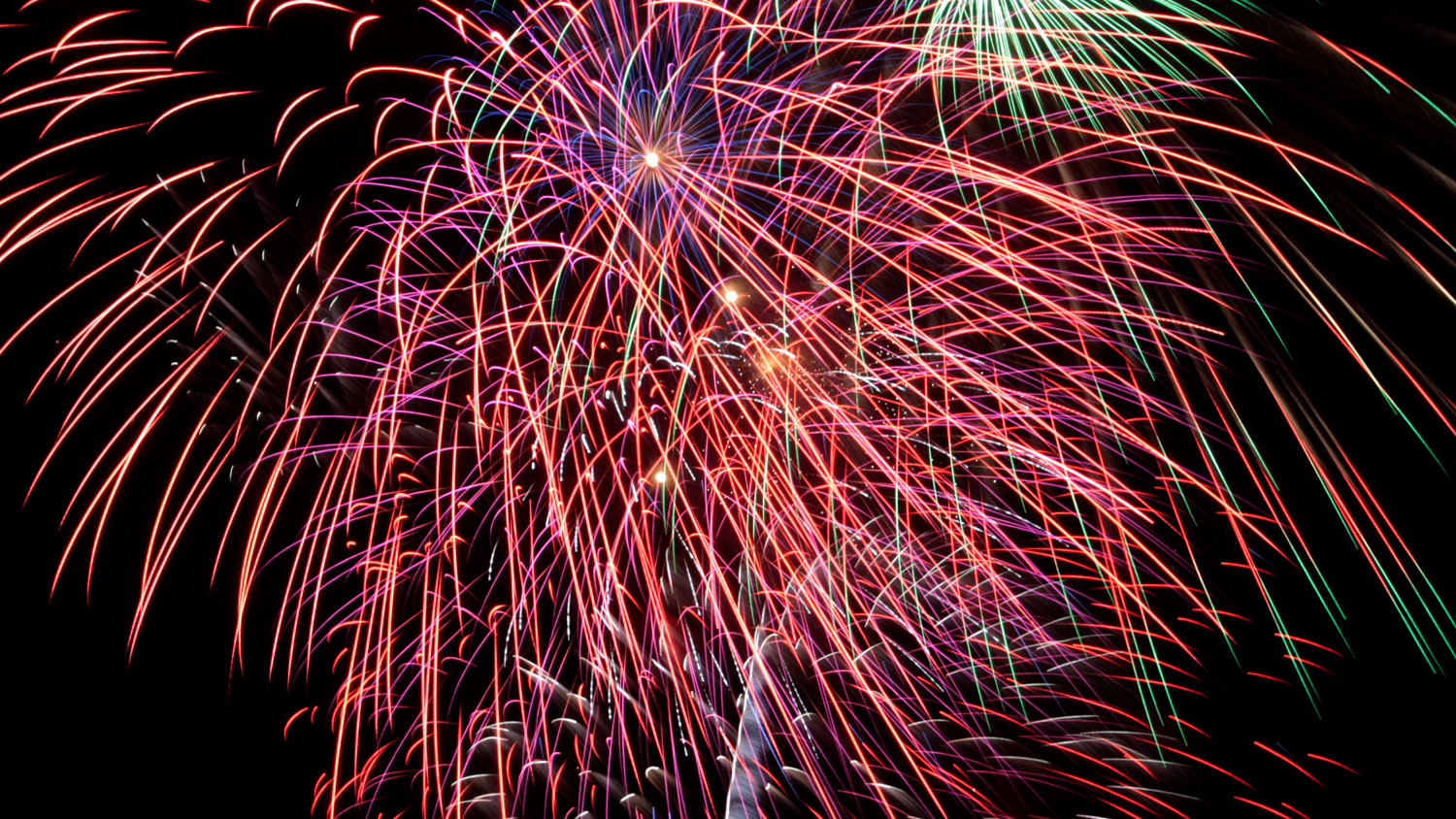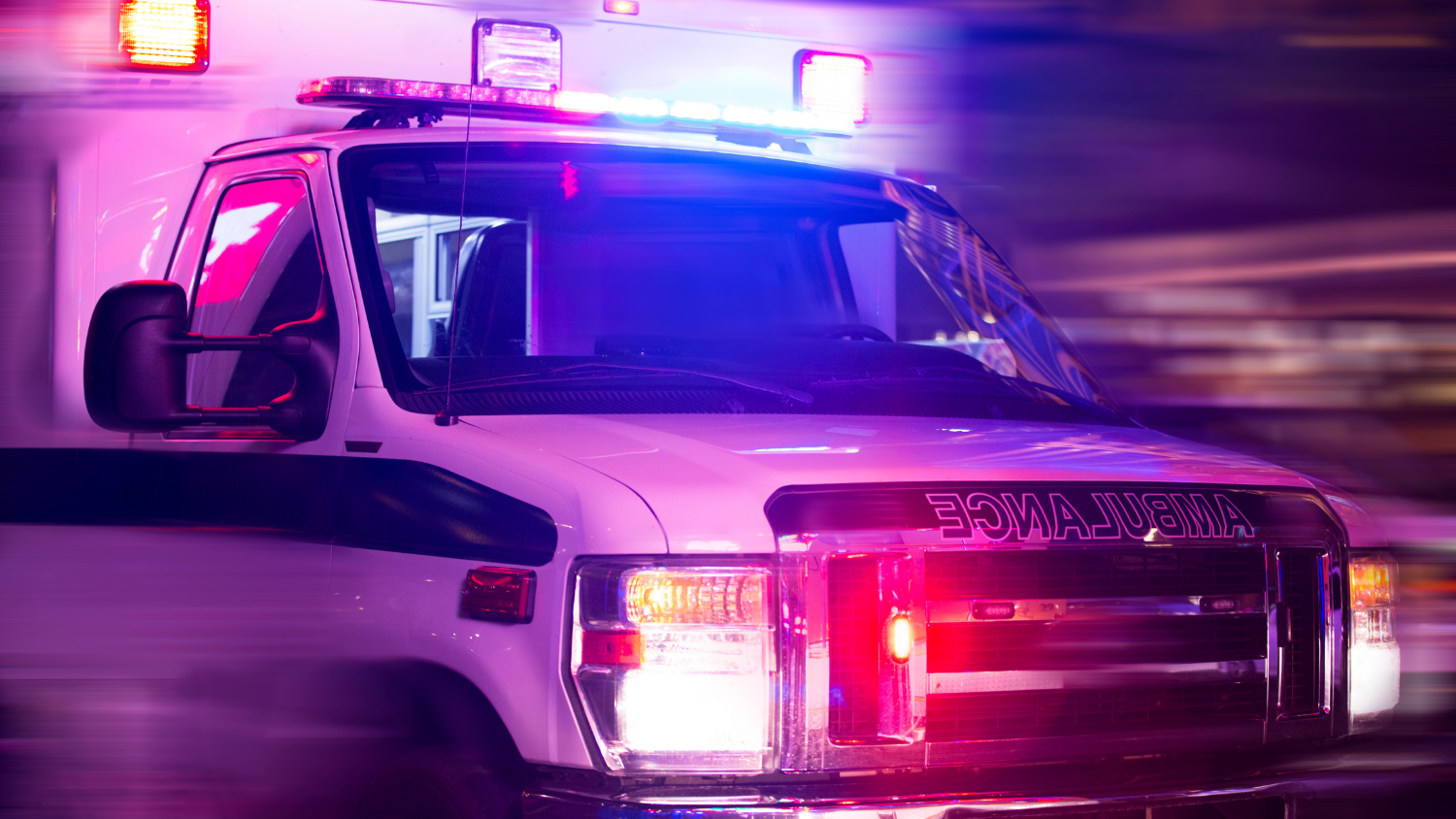Fire Safety + Prevention
Fire Safety + Prevention
The Overland Park Fire Department responds to more than 20,000 calls for service each year. Many of those are preventable fire calls and medical calls.
The following information will help you prevent a fire or medical issue at your home or business.
Contact
913-895-8400
Follow Us
Smoke Alarms
The Overland Park Fire Department offers and installs battery-operated smoke alarms and specialized deaf detectors for older adults, individuals with disabilities or low-income residents. If you have family members who can assist or the resources to hire someone to maintain your alarms, we encourage you to do so. If not, we’re happy to help with annual battery replacements in your smoke alarms. Please note that we do not service hard-wired smoke alarm systems.
Smoke alarms save lives in Overland Park every year. In your home they should be placed:
- On every floor
- Inside and outside each sleeping area
- At least three feet away from air vents and exhaust fans
- Out of the path of steam or fumes from bathrooms or cooking areas.
Never hesitate to call the fire department if you see or smell any smoke, even if you cannot locate its source.
Smoke Alarm Maintenance
- Make sure everyone in your home knows the sound of the smoke alarm.
- Replace batteries in all smoke alarms at least twice a year. The back of the smoke alarm should contain information on which brand of 9V battery is compatible with your specific smoke alarm.
- Replace smoke alarms every 10 years or if they do not respond properly when tested.
- Never paint over, cover up or dismantle your smoke alarm.
Troubleshooting False Alarms
Dust may trigger false alarms. Keep your alarm dust-free.
Old smoke alarms may trigger false alarms. Replace alarms every 10 years or if they do not respond properly when tested.
Smoke alarms emit a chirping sound when a battery is low. Replace smoke alarm batteries right away with newly purchased 9V batteries, recommended by your smoke alarm’s manufacturer. The back of your smoke alarm should tell you which brand and model number of batteries are compatible with your smoke alarm. Replacing old batteries with the wrong brand/model could result in a malfunction. Unused batteries can expire in storage. Make sure you are not replacing a battery with an expired battery.
Carbon Monoxide Alarms
Carbon monoxide is colorless, odorless and tasteless. Your only indication of its presence may be family members and pets experiencing flu-like symptoms, dizziness, lethargy, headache or nausea. If you suspect carbon monoxide, call 911.
Carbon monoxide alarms should be installed on every floor of your home and in a central location outside sleeping areas.
Test carbon monoxide alarms once a month. If a carbon monoxide alarm sounds, immediately open windows and doors or move outside. Make sure everyone in your home is accounted for, call for help from a fresh air location and stay there until emergency personnel arrive.
Smoking Safety
Careless disposal of cigarettes is a leading cause of fires and violates city ordinance.
If you smoke:
- Smoke outside.
- Stay alert. Do not smoke if you are tired, have taken medicine or consumed alcohol.
- Never smoke in bed or in a home with oxygen tanks.
- Use deep, wide ashtrays on a sturdy table.
- Before you throw out butts and ashes, make sure they are out. Dousing in water or sand is the best way to do that.
Littering
Littering cigarette butts is harmful to the environment and causes wildfires. It is a violation of city code to litter, including cigarette butts. Do not throw or drop litter onto any highway, road or street.
Drivers may be cited for any litter left behind from a vehicle unless another person in the vehicle admits or is identified as having committed the act.
Home Escape Plans
An effective escape plan can save lives during a fire. Follow these steps from the National Fire Protection Association to create a plan:
- Walk through your home with your family, and draw a map of the building.
- Determine two safe routes out of each room in your home, and be sure those points are not blocked.
- Choose an outside meeting place a safe distance from your home where everyone will meet once they’ve evacuated.
- Make sure your house number is visible from the road so emergency personnel can find your home.
- Assign someone in the home to assist infants or anyone with mobility issues in an emergency.
- Practice evacuating twice a year.
Family Protection
Children
Children playing with matches, lighters and fires cause deaths and injuries every year. Young children are most likely to start fires inside the home. The following safety tips will help your children understand the danger of playing with fire:
- Store matches and lighters out of the reach of children.
- Use lighters with child-resistant features.
- Teach young children to tell an adult if they see matches or lighters.
- If your child expresses curiosity or interest in fire, explain that matches and lighters are for adults only.
- If necessary, take advantage of OPFD’s Juvenile Firesetters Program.
Before permitting your child to sleep over at a friend’s house, make sure they have an escape plan in case of a fire.
Older Adults
Adults 65 years and older are more likely to die in a fire. Older people can reduce their risk of death and injury by following these steps from the National Fire Protection Association:
- If possible, sleep on the ground floor of your home.
- Make sure smoke detectors work and will wake you if you’re asleep.
- Conduct your own regular fire drills.
- Make sure you’re able to open the doors and windows in your home.
- Keep emergency numbers near the phone in case you must call for help.
Cooking Safety
Cooking is the top cause of home fires and home fire injuries. Unattended cooking causes most fires in the kitchen. To avoid a kitchen fire:
- Be alert. Don’t cook if you’re tired or have been drinking.
- Stay in the kitchen while food cooks.
- If you are cooking a slow-roasting meal, such as a Thanksgiving turkey, stay in the house.
- Use a timer to remind yourself food is cooking.
- Keep flammable materials like oven mitts, wood utensils and food packaging away from the stove and oven.
- Keep children away from the stove and oven.
- Keep the kitchen floor clear of clutter.
- Keep electric appliance cords from dangling off the edge of the counter.
- Keep a lid nearby when you’re cooking to smother small grease fires. If a small grease fire ignites, slide the lid over the pan and turn off the stove.
- Use a firestop device under your range hood or microwave to release a non-toxic fire-suppressing powder if a fire does start.
If you have a kitchen fire:
- Get out of the house. Close the door behind you to help contain the fire.
- Call 911.
- If you do try to fight the fire, make sure others get out of the house and you have a clear way out.
- If a fire starts in the oven, turn off the heat and keep the door closed.
Barbeque Grills
Only use grills outdoors. Position them well away from siding and deck railings and out from under eaves and branches. Periodically remove grease from the tray below the grill.
City code prohibits those living in apartments and condominium communities from using gas or charcoal grills within 10 feet of the building or any other combustible construction unless that building has an automated sprinkler system.
Fryers
Fryers present an additional danger, because they can tip over, easily overheat and are prone to splattering. If you use a turkey fryer, follow these tips to be as safe as possible.
- Make sure turkeys are completely thawed before using a fryer.
- Use fryers outside only, on a sturdy surface away from flammable materials.
- Don’t overfill the fryer with oil. Determine the correct amount of oil ahead of time by placing the turkey in the pot with water.
- Check the temperature often so the oil doesn’t overheat.
- Use long cooking gloves that protect both your hands and arms when you handle the fryer, lid, or handles.

Fireworks
It is illegal to purchase, possess, or discharge any fireworks in Overland Park.
The following types of fireworks are prohibited:
- Sparklers
- Firecrackers
- Torpedoes
- Skyrockets
- Roman candles
City ordinance does not prohibit the use of snappers, snakes, toy pistols, or canes with caps.
Any person who violates the ordinance is subject to a fine of up to $500.
To report illegal firework use, call police dispatch when it occurs, at 913-895-6300.
File of Life
The Overland Park Fire Department provides the File of Life document free of charge.
Download and print this document to ensure emergency medical services who arrive at your home have your medical information on hand. Place the completed form on your refrigerator or in a common space in your home so it’s easily accessible.

